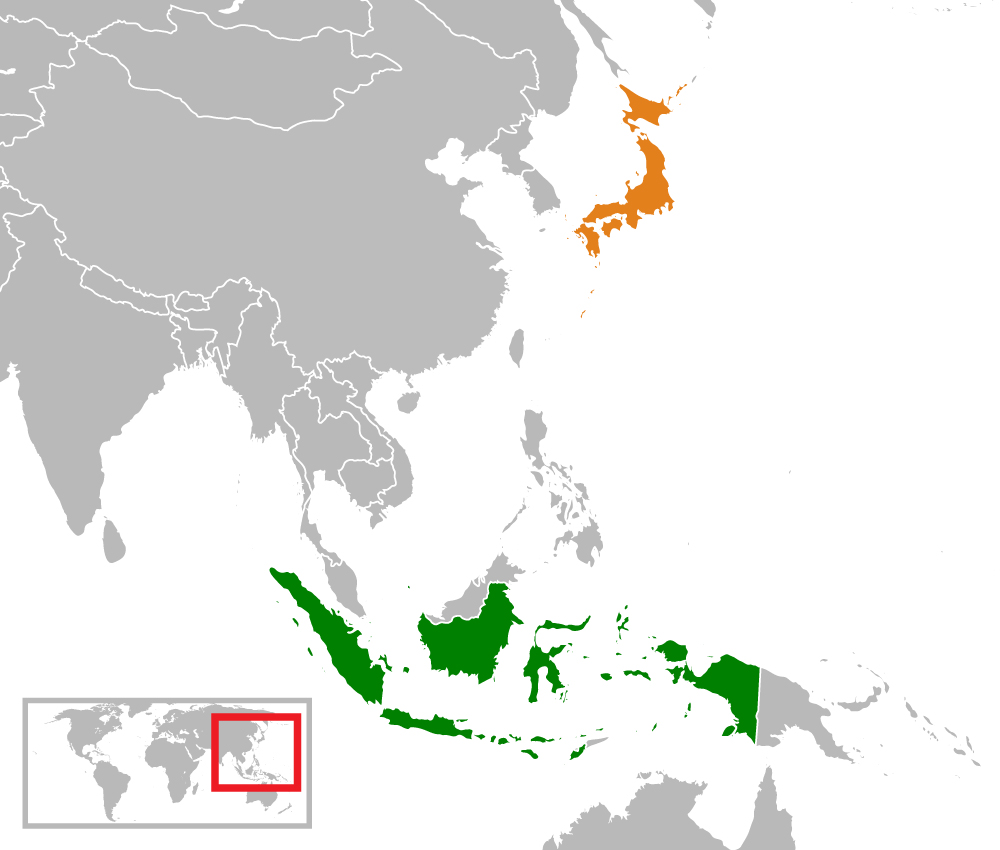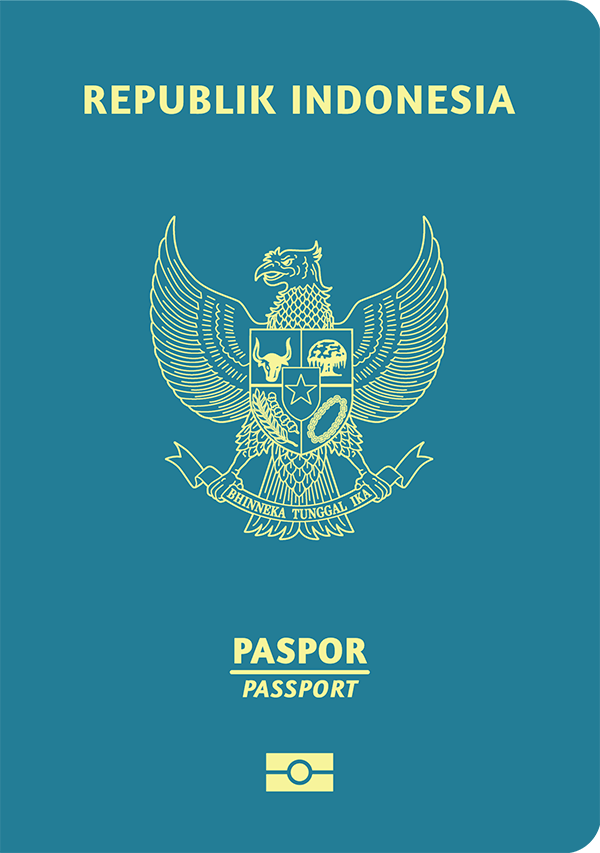
As is well known, the signing of the Peace Agreement between Japan and the Republic of Indonesia in April 1958 marked the beginning of a protracted cooperation relationship between Indonesia and Japan. Since then, several areas have become available for cooperation in the field of manpower, including technical intern trainees, which was established in 1993 with the aim of transferring Japanese technology, and the IJEPA (Indonesian-Japan Economic Partnership Agreement) cooperation, which began in 2008 and serves as an agreement regarding an economic partnership between Indonesia and Japan, which is based on the principles of the EPA (Economic Partnership Agreement) (Kemendag, 2021). And most recently, cooperation in workforce recruitment through the SSW (specially skilled workers) program, also known as “Tokutei Ginou,” which was launched in 2019 with the goal of filling Japan’s labor shortage (MOFA, 2019). Since then, there have been more Indonesians living in Japan; at the end of 2022, according to the Japanese Immigration Data for June 2022, there were 83,000 Indonesians living there. The number of interns, or “kenshusei,” climbed from 34,000 to 44,000 in the statistics (Tempo, 2022).
Being Lonely and Marriage in Japan
The life of Indonesian migrant workers in Japan is not without challenges (VOAIndonesia, 2020). For the trainee program itself, for example, there have been many criticisms from both within Japan and internationally due to the many findings of violations in the field (State.Gov, 2022) . In addition, the newest program for SSW also has several obstacles, including the distribution of SSW 1 and 2 (BP2MI, 2019), which limits family participation during the program, which is one of the factors that hinders participants’ rights to bring family. The following are the results of interviews with several Indonesian workers in Japan, including trainee visa holders and also “specially skilled” workers related to reproductive rights and family.
The interviewee, a trainee participant who became pregnant while enrolled in the program, revealed that when her pregnancy was revealed, the supervising organization, which used to be known as “Kumiai,” exerted pressure on her. She explained in the interview:
“I met my husband in Japan when we were both undergoing technical trainee programs. Then we got married. And the problem arose when I was pregnant; at that time I felt confused, and finally I informed “Kumiai” about my pregnancy, but “Kumiai” actually pressured me, and when I went to the doctor with “Kumiai” without prior discussion, ‘Kumiai’ asked the doctor if my womb could be aborted, and after that I only had two choices: if I continued the pregnancy, I would be terminated.” (SH, Utsunomiya, 2021)

TA (initial name), a migrant worker who has lived in Japan for five years, made the same assertion. After serving as a trainee for the first three years, TA is currently working as an SSW for the same business. TA admitted during the interview that she and her friends deal with loneliness frequently. and yearning for a friend and a family. Making friends, especially with Japanese people, can be challenging owing to cultural differences and the busy schedule of working hours. At times, it might also feel cold. In the conversation, TA clarified.
“No matter how much income you earn in Japan, you can’t make up for the feeling of loneliness. Sometimes I’m jealous to see that my friends in Indonesia already have families and children. That was also my family’s consideration when asking me to just go back to Indonesia. “While my age continues to go on, looking for a partner with my current working visa condition is also difficult when I get married, and there are a lot of worries if I have children later. (TA, Nagoya, 2021).
The same worry is shared by AH and his wife (Kyoto, 2021) who also met and were married in Japan and are now SSW type 1 visa holders. He mentioned his worry about his wife getting pregnant throughout the interview. The law of SSW 1, which forbade bringing a family, was a concern while having children, despite the fact that both people truly wanted to have a family immediately away. Similar worries were voiced by TS former trainee participants who returned to Japan as SSW type 1. During the interview, TS—who currently lives away from his wife and three children—also disclosed the following:
“In terms of emotions, I feel lonely and want to be with my family, but what can I do if the restrictions forbid me from taking them along? I need to be mindful of the consequences. It is hoped that after I complete five years of SSW 1 or if I can successfully pass the Japanese national nursing test, I will bring my family with me. Although I heard that being able to pass the national nursing exam in Japan is very difficult, even those who major in nursing do not pass. However, I do not yet know how to bring my family, the environment, and other things together.” (TS, Fukuoka, 2022)
Technical intern trainees commonly experience abuses of foreign workers’ reproductive rights in Japan, it was revealed in a discussion led by the grassroots movement RUMI (the home of Indonesian people in Japan) (NHK, 2022), which held a session on raising awareness about women’s reproductive rights. According to the Japanese Ministry of Manpower, 637 technical apprentices terminated their programs between November 2017 and 2020 as a result of pregnancy or childbirth, and just about 11 participants, or 1.7%, were capable of finishing the training (Japan Times, 2022).

Economically coveted or socially and politically undesirable
The age range of trainee participants and SSWs who come to Japan is a productive age range, and many experts criticize neither trainee nor SSW programs because they perceive less skilled migrants as transient or “disposable” and provide them with less privilege than their highly skilled counterparts (Endoh, 2021). This is done to fill vacancies in the Japanese workforce, which is already dominated by the elderly (Asia Nikkei, 2022). However, the value of their entrance should not merely be viewed in terms of economic advantages and productivity. They arrive as humans, not simply as employees. The employees developed a fear of love and marriage while in Japan due to the ban on getting married and pregnant (NHK, 2019), which is pressed by certain careless companies, brokers, and “Kumiai,” and these things had even taken place prior to their departure, where the recruitment scheme has been problematic (Bebesa.org, 2021). According to the findings of interviews and discussions held by the grassroots organization RUMI, there are many irresponsible agencies has threatened the worker if they are found to be pregnant while they are working in Japan. and many have been made to sign a pre-departure agreement, promising not to become pregnant. Although the Japanese government has warned businesses, for instance, not to restrict the reproductive rights of trainee workers who are pregnant. However, given the large number of negligent parties that continue to operate as middlemen and obstruct the proper fulfilment of employees’ rights, this is insufficient. According to Shoichi Ibusuki, a lawyer concerned about problems encountered by trainees abroad, the fact that the government needs to remind and inform individuals involved that it is unlawful to disadvantage and compel pregnant interns “shows the seriousness of the matter” (Kyodo, 2019). Meanwhile, the division of people into groups according to whether they are permitted to become pregnant and start families or not, truly displays societal inequality and flagrantly violates human rights (Migrant Forum Asia, 2021). This situation illustrates how migrant laborers are consistently caught between being economically coveted and being socially and politically undesirable.
Yusy Widarahesty
PhD Student and Research Assistant at Asia Japan Institute Ritsumeikan University Japan.
Lecturer at the International Department University of Al Azhar Indonesia.
References:
Asia Nikkei. (2022 August 9). Japan population falls at record pace to 125.93m with births low. Retrieved from Asia Nikkei: https://asia.nikkei.com/Spotlight/Society/Japan-population-falls-at-record-pace-to-125.93m-with-births-low
Bebesea. (2021 February 28). Shifting the Paradigm of Indonesia-Japan Labor Migration Cooperation (2020) by Human Rights Working Group Indonesia (HRWG). Retrieved from Bebesea: https://bebesea.org/2021/02/shifting-the-paradigm-of-indonesia-japan-labor-migration-cooperation-2020-by-human-rights-working-group-indonesia-hrwg/
BP2MI, (2019 October 14). Informasi Tentang Specified Skilled Worker (SSW). Retrieved from BP2MI: https://www.bp2mi.go.id/berita-detail/faq-ssw-jepang
Endoh, Takeo. (2021). Immigration Easing or Restriction?: A Consideration of Japan’s Foreign Workers Acceptance Policy. The Bulletin of Graduate School of Josai International University. Vol. 24. March 2021. 289- 298. https://www.jiu.ac.jp/files/user/education/books/pdf/2020-24-018.pdf
FTA Center, Kementrian Perdagangan Indonesia. (2019 April 29). IJEPA. Retrieved from FTA Center Kemendag : https://ftacenter.kemendag.go.id/ijepa
Japan Times. (2022 April 26). Women in Japanese technical intern program face pregnancy trap. Retrieved from Japan Times: https://www.japantimes.co.jp/news/2022/04/26/national/social-issues/technical-intern-abuse/
Kedutaan Besar Jepang di Indonesia. (2023, January). Peringatan 65 Tahun Hubungan Diplomatik Jepang -Indonesia. Retrieved from Kedutaan Besar Jepang di Indonesia: https://www.id.emb-japan.go.jp/anniv65years_i.html
Kyodo. (2019 March 14). Japan gov’t warns organizations against firing pregnant foreign trainees. Retrieved from Kyodo: https://english.kyodonews.net/news/2019/03/28b9e7461d01-refiling-govt-warns-organizations-against-firing-pregnant-foreign-trainees.html
Migrant Forum Asia. (2021 November). Japan’s Specialized Skilled Workers Visa Scheme: Same Old Story or Something New: Retrieved from Migrant Forum Asia: https://mfasia.org/migrantforumasia/wp-content/uploads/2021/11/Japans-Specialized-Skilled-Worker-Visa-Policy-Brief.pdf
MOFA. (2019) 14 Occupations Covered by SSW. Retrieved from MOFA: https://www.mofa.go.jp/mofaj/ca/fna/ssw/us/index.html
NHK. (2022 October 12). RUMI Jepang, Mempromosikan Kesadaran Hak dan Perlindungan Pekerja Migran Indonesia di Jepang. Retrieved from NHK: https://www3.nhk.or.jp/nhkworld/id/radio/id_tamatebako/202210120600/
NHK. (2019 March 27). No love for foreign trainees?. Retrieved from NHK: https://www3.nhk.or.jp/nhkworld/en/news/backstories/413/
Tempo. (2022 December 15). Number of Indonesians Living in Japan May Rise to Nearly 100,000 by Year’s End. Retrieved from Tempo: https://en.tempo.co/read/1668474/number-of-indonesians-living-in-japan-may-rise-to-nearly-100000-by-years-end
U.S. Department of State. (2022). 2022 Trafficking in Persons Report: Japan. Retrieved from U.S. Department of State: https://www.state.gov/reports/2022-trafficking-in-persons-report/japan/
VOA Indonesia. (2020 May 23). Banyak Masalah, Program Magang ke Jepang Diminta Ditangguhkan. Retrieved from VOA Indonesia: https://www.voaindonesia.com/a/banyak-masalah-program-magang-ke-jepang-diminta-ditangguhkan/5432689.html
Interviews were conducted by four Indonesian workers in Japan, and a summary of the results of discussions organized by the grassroots movement RUMI Japan, which was founded by researchers of Indonesian workers in Japan, and was presented at the Migrant Talk event. As an ethical consideration, only the participants’ initials are used to protect their privacy.
